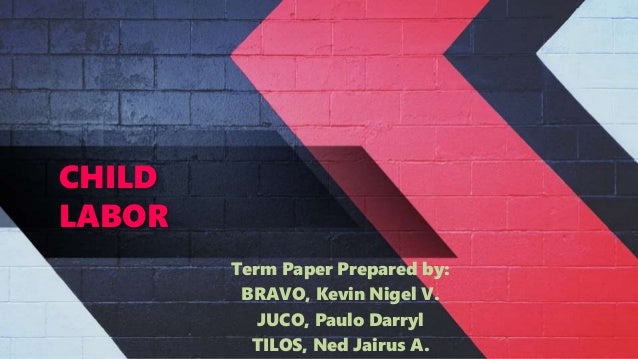
The term Sixties Scoop was coined by Patrick Johnston, author of the report Native Children and the Child Welfare System. It refers to the mass removal of Aboriginal children from their families into the child welfare system, in most cases without the consent of their families or bands Background studies are required for people in certain health and human services programs, and for people who work in child care settings, if they provide care or have direct contact with people being served. DHS also completes background studies on others, such as people who are guardians or are planning to adopt a child The approach and strategies contained in this White Paper for Social Welfare will transition experienced by many workers owing to changes in work and living conditions, and social protection during times of unemployment, ill-health, maternity, child-rearing, widowhood, disability, old age and so on. Social welfare programmes of this
JOURNAL ARCHIVES – CWLA
Striving for Success: Youth Formerly in Foster Care and their Ability to Lead Successful Lives Donald Jackson and Carla Cesaroni. Attitudes toward Transracial Adoption Among African American MSW Students Jaegoo Lee, Trenia L. Allen, Bridgette Harris and Tamara Pace-Glover. Motivation to Foster Among Single Foster Parents Morgan E. Cooley, Brittany P. Mihalec-Adkins, Heather M. Thompson and Aakansha Mehrotra. Do Parenting Resources Sufficiently Oppose Physical Punishment? Baker, Stacie Schrieffer LeBlanc and Mel Schneiderman.
Safety Assessment and Family Evaluation Model: A Systematic, Change-Based Approach to Public Child Welfare Intervention Todd Holder.
Dumais and Naomi J. From the Editor: The Sting of Homelessness among Youth Exiting the Foster Care System. Prevalence of Risk and Protective Factors for Homelessness among Youth in Foster Care G.
Lawrence Farmer, Janna C. Heyman, Peggy L. Kelly and Tara Linh Leaman. Women in the Waves: Learning from Mothers in Recovery through Photovoice Heather Howard and Marianna L. Understanding and Partnering with Amish Communities to Keep Children Safe Jeanette Harder. Providing Parents with Advice about Alternatives to Psychological Maltreatment: A Survey of Professionals in the Field of Child Maltreatment Amy J.
Baker, Marla R. Brassard and Janet F. Systematic Review of Foster Parent Recruitment Ryan Hanlon, Alanna Feltner, Angelique Day, Lori Vanderwill, JaeRan Kim and Elise J. A Case Study of the Nutritional Status of Children Living in a Term paper on child welfare workers Care Institution in Mexico City Claudia Nieto, Georgina Ibáñez, Benjamin Aceves, Isabel Valero-Morales, Yareni Gutiérrez-Gómez and Ana Gabriela Maafs-Rodríguez. Special Foreword: The Importance of Cross-National Collaboration Katharine Briar-Lawson, Christine James-Brown and Donna Petras.
Neglect of Young Children in South Africa: Implications for Prevention, Identification, and Intervention Kim Schmidt and Lenette Azzi-Lessing. Thinking and Learning Together: Applying an Educational Intervention for Children Affected by Violence in Northern Uganda to a U. Classroom Martha Bragin, Joseph Mikulka, Opiro Wirefred George, Michael Lewis and Sam Guzzardi. Child Welfare Services: Considerations for Disaster Planning Preparedness Hilda P. Rivera-Rodríguez and Jennifer Oliveras-Del Río.
Family-Centered Anti-Poverty Strategies to Address Child Neglect Katharine Briar-Lawson, Jessica A. Pryce and Salome Raheim. Resourcing the System and Enhancing Relationships: Pathways to Positive Outcomes for Children Impacted by Abuse and Neglect Allison Cox, Bruce D.
Perry and Margarita Frederico. Enabling Community-led Child Protection: The Journey of an Experimental Field Site in Madhubani Bihar, India Kajol Devasmita Menon and Nicole Rangel. Lucero, Marian Bussey, and Tabitha Carver-Roberts. Transitioning Children in Foster Care to Adoptive Homes Redmond Reams, term paper on child welfare workers. An Analysis of the Demographic Predictors of the Use of a Louisiana Parenting Helpline Lisa M.
Social Work Degrees and Title IV-E Stipends: Predictive Factors for Worker Retention in Public Child Welfare Patrick Leung, Monit Cheung, and Lindamarie Olson. Do Race, Racial Disproportionality, and Disparities Remain Foci of ChildWelfare? Briggs, Christi P.
Hardeman, Leon Banks, Adam C. Briggs, Junior Lloyd Allen, June Gary Hopps, and Daniel McCrary. From the Editor: The Impact of Trauma-Informed Care and Cultural Humility in Child Welfare Systems.
Trauma-Informed Care Intervention for Culture and Climate Change within a Child Welfare Agency Molly M. Garwood, term paper on child welfare workers, Maria R. Beyer, Jennifer Hammel, Tricia Schutz, and Heather A. Effectiveness of Critical Ongoing Resource Family Education Teen Edition CORE-Teen : Support for Resource Parents of Teens who are American Indian Angelique Day, Stacie Tao, Nicolas Term paper on child welfare workers, Sasha Jumper, Meghan Arnold, and Suzanne Cross.
Foster Parent Perceptions of Feeding Infants Prenatally Exposed to Substance Use Sara E. Intersectionality and Child Welfare Policy: Implications for Black Women, Children, and Families Abigail Williams-Butler, Kate E. Golden, Alicia Mendez, and Breana Stevens. A Multi-Level Analysis of the Effects of Independent Living Programs Chun Liu. Implementing Trauma Screening and Trauma Assessment in Child Welfare: The Journey of Seven Colorado Counties Christine Rizzo, Stephanie Seng, Marc Winokur, Catherine Weaver, Thad Paul, and Lise Youngblade.
Child Welfare System. We Can Do Better: Mitigating Negatively Racialized Attitudes in Child Welfare through Self-awareness Training Adrianne M. Crawford Fletcher and Tohoro Akakpo. Frontline Worker Perceptions of Organizational Supports to Term paper on child welfare workers Evidence Use in Private Child Welfare Agencies Crystal Collins-Camargo, Emmeline Chuang, Nicole Lauzus, Amy Bonilla, and Bowen McBeath.
Perceptions of Workload and Job Impact as Predictors of Child Welfare Worker Health Status Austin Griffiths, David Royse, Chris Flaherty and Crystal Collins-Camargo.
Neonatal Abstinence Syndrome and Trends in Infant Foster Care Admissions Margaret H. Lloyd Sieger and Jessica Becker. Outcomes of Young Adults Aging out of Foster Care: A Latent Class Analysis Pedro M. Hernandez and Jaegoo Lee, term paper on child welfare workers. Governors as Policy Entrepreneurs: Setting the Agenda for Children Mary Elizabeth Collins and Sook Hyun Kim Understanding the Role of Coaching in Implementing and Sustaining Interventions in Child Welfare: A Review of the Literature April Allen, Term paper on child welfare workers Hafer and Susan Brooks.
Mental Health Screening in Treatment Foster Care Bonnie D. Kerker, Carol A. Quinlan, Glenn N. Saxe and Erika Tullberg. The Context-Specific Service Provision of CASA Colleen Cary Katz, Kerry Moles, Peggy Grauwiler and Sloan Silverman Post.
A Model to Improve Educational Stability Collaborations between Child Welfare and Educational Agencies: Applying the Theory of Collaborative Advantage Kalah M. Understanding Individual and Organizational Factors Related to the Implementation Fidelity of the Family Finding Intervention to Support Youth in Foster Care who are Transitioning to Independent Living Liat Shklarski.
Shdaimah and Jonas Rosen. The Perception of Mentors and Mentorship among Youth at Risk in the Russian Federation Alexandra Telitsyna, Tatiana Arakantseva, term paper on child welfare workers, and Olga Zavodilkina.
Examining Social Support Needs of Emerging Adults Transitioning out of Foster Care Francine E. Packard and Lorraine T. Suicide Prevention Training in the Child Welfare Workforce: Knowledge, Attitudes, and Practice Patterns Prior to and Following safeTALK Training Eskira Kahsay, Christina S. Magness, Seth Persky, term paper on child welfare workers, Patricia K.
Smith, and Cynthia Ewell Foster. Ensuring Young People Flourish: Applying the Science of Adolescent Development through the Jim Casey Youth Opportunities Initiative Jeffrey M. Poirier, Leslie Gross, Alex Lohrbach, Leonardo Johnson and Sandra Wilkie. Factors Predicting Patterns of Service Use among John F. Chafee Independent Living Services Recipients Alfred G. Pérez, Richard J. Harris and Ka Ho Brian Chor. Countdown to Outcomes from a Transition Support Program for Older Youth Exiting Foster Care Sonya J.
Leathers, Beth L. Vande Voort, Kuan Xing, Kevin Walsh, Jill E. Spielfogel, Lee Annes, Tracy Frizzell and Dondieneita Fleary-Simmons, term paper on child welfare workers. Educational Trajectories of Youth Formerly in Foster Care who are LGBTQ: Before, During, and After Emancipation Sarah Mountz, Moshoula Capous-Desyllas and Lalaine Sevillano.
Factors Associated with Postsecondary Engagement for Youth Leaving Foster Care: An Analysis Using the National Youth in Transition Database Amy M. Salazar, John Paul Horn and Michael J. Katz and Jennifer M. The Impact of Adverse Childhood Experiences on Sexual Well-being among Youth Formerly in the Foster Care System Richard A. Brandon-Friedman and J. Dennis Fortenberry. Identifying Strategic Entry Points for Services among Transition-aged Mothers who are Homeless Mayra K.
Cazares and Julia Hernández. Bridging the Transition: What Makes for Success in a Formal Mentoring Program for Youth Exiting Foster Care? Sarah C. Narendorf, Reiko Boyd, Caitlyn Mytelka, Katy Vittoria and Mary Green. Strategies for Engaging Youth Currently and Formerly in Foster Care in Child Term paper on child welfare workers Policy Advocacy: Lessons from the New England Youth Coalition NEYC Astraea Augsberger, Noor Toraif, Julie Sweeney Springwater, Grace Hilliard Koshinsky and Linda Sprague Martinez.
Child Welfare Choice - A case workers realistic job preview
, time: 24:43Ministry of Rural Development (India) - Wikipedia

Dec 05, · “A single parent with a couple kids can easily get $35, a year in total benefits between the health care and the earned income credit and the FoodShare and The approach and strategies contained in this White Paper for Social Welfare will transition experienced by many workers owing to changes in work and living conditions, and social protection during times of unemployment, ill-health, maternity, child-rearing, widowhood, disability, old age and so on. Social welfare programmes of this Organizational Influences on Data Use among Child Welfare Workers Sang Jung Lee, Charlotte Lyn Bright, and Lisa J. Berlin This study addresses organizational factors associated with child welfare workers’ data use in their day-to-day work. Survey data from respondents were analyzed using logistic regression
No comments:
Post a Comment